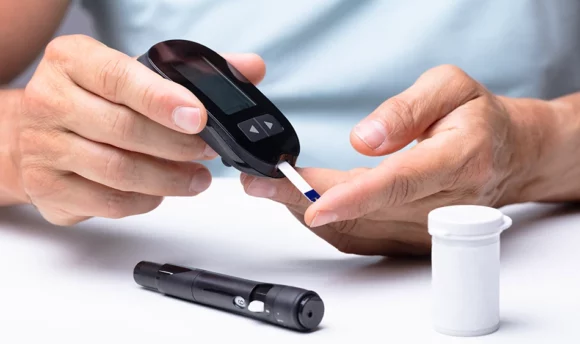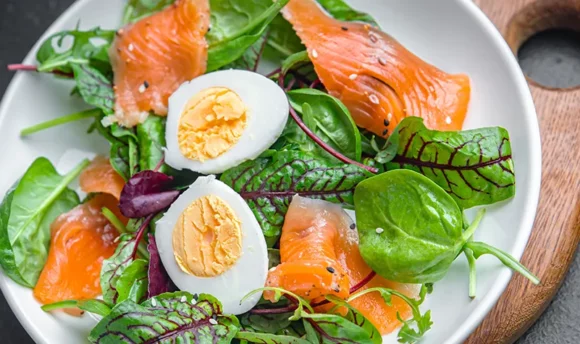Keto While Breastfeeding: A Great or Terrible Idea?
If you’re a new mom, you might be wondering whether you can mix a ketogenic diet with breastfeeding.

It’s an important question to ask, as your milk supply becomes the entire food source for your new baby until they move to solid food. With that in mind, what goes into your body becomes a priority. You want to produce breast milk that meets the nutritional demands of your newborn.
So, is keto suitable for breastfeeding moms?
This diet has many health benefits, from burning fat and improving heart health to managing blood sugar and insulin levels. But like any diet, it has its own set of health risks.
This article looks at keto and breastfeeding to determine the safety of such a diet for your newborn. Let’s dive straight in.
Can You Do Keto While Breastfeeding?
In short, no, you shouldn’t follow the keto diet while breastfeeding.
The keto diet entails a high-fat intake of fatty fish, eggs, cheese, mayo, and vegetable oils. Because of the high-fat content, most keto foods fill you up quickly while you consume fewer calories. This could potentially reduce your milk supply as you consume less than the recommended daily caloric intake.
Most breastfeeding moms require more calories than usual. The CDC suggests an additional 330–400 calories per day as breastfeeding burns extra calories, especially in the beginning when your baby solely relies on your breast milk.
Another keto health risk while breastfeeding is that it’s easy to become dehydrated. Dehydration comes with many health complications, and it may also affect milk production.
Dieting, in general, is advised against while breastfeeding. It’s best to eat a healthy diet that provides essential nutrients to your baby when they need them the most.
Low-Carb Diet and Breastfeeding
Like the keto diet, low-carb diets are considered unsafe for breastfeeding women.
The low-carb and keto diet works by switching the way your metabolism functions. When you cut down your carb intake, your body runs out of glucose and starts to burn fat for fuel. At the same time, the liver produces chemicals called ketones that build up in the blood.
If levels of ketone bodies are too high, they can upset the bloodstream, causing serious illness and even poisoning the body. Ketones can endanger your baby, so it’s not worth taking the risk.
It’s also worth noting that carbohydrates are an essential fuel source for infants, contributing to growth and development. Reducing your carbohydrate intake may leave your baby short of vital nutrients within your breast milk.
It’s best overall to avoid a low-carb diet or keto diet while breastfeeding.
Can I Take Keto Pills While Breastfeeding?
Again, no. You should not take keto pills while breastfeeding.
Keto pills or keto supplements contain exogenous ketones, a form of ketone bodies that enter the body via dietary supplements.
Many people who follow the ketogenic diet use keto pills to help facilitate ketosis. It can speed up the process, which is great for keto dieters.
As keto pills have ketones, they should not be used while breastfeeding as they pose a risk to the baby.
While most healthy, non-lactating adults will handle the keto diet just fine, it’s possible that following a low-carb, high-fat diet may induce ketoacidosis.
Ketoacidosis is a serious complication that occurs when the body produces too many ketones too quickly. It’s most commonly associated with diabetic patients (clinically called diabetic ketoacidosis).
Although rare in humans, there have been cases of breastfeeding women suffering from life-threatening lactation ketoacidosis. The risk of ketoacidosis is thought to be greater in breastfeeding and pregnant women.
Best Diet for Breastfeeding Moms
Milk production comes with increased nutritional demands. If you’re a breastfeeding mother, focus on eating a nutritious, healthy diet with enough calories to support both you and your baby. Forget the strict ketogenic diet.
A balanced diet consists of whole foods with plenty of fruit and vegetables, protein, and whole grains. Cut out any processed and sugary food that won’t benefit you or the baby.
You can take your protein from lean meats, poultry, fish, eggs, nuts, and seeds.
Nutrient-dense vegetables include dark leafy greens, broccoli, Brussels sprouts, and Swiss chard. Take your whole grains from whole wheat bread and pasta, oatmeal, and brown rice.
It’s also essential to drink plenty of water and other healthful beverages like herbal teas or decaffeinated tea to stay hydrated.
Alongside eating well, exercise plays a crucial role in a healthy lifestyle. Light and gradual physical activity are beneficial to a breastfeeding mom. Even taking a short walk can be great for overall health and wellbeing without affecting milk production.
Light to moderate exercise doesn’t affect how much milk you produce or impact your breast milk composition.
Many mothers wonder about getting their bodies back when adapting to postnatal life. We don’t recommend the keto diet or any other low-carb diet for breastfeeding mothers, but there are other ways to lose the baby weight.
A Word From Nutritionist
The keto diet is a low-carbohydrate diet synonymous with weight loss, fat burning, and improved blood pressure.
It’s a popular method that thousands use to lose weight or treat certain medical conditions. However, it’s not advisable for breastfeeding moms.
When you restrict yourself to almost zero carbs, your body begins burning through fat stores and producing ketone bodies for energy.
Ketones can be dangerous to both mother and child, with lactation ketoacidosis an increased possibility, although rare.
To evade any potential health risks, leave the ketogenic diet until you are no longer producing milk and your baby is on solid food. For now, focus on getting adequate calories from whole foods rich in vitamins and minerals.
Conclusion
It’s unlikely that any health professional will advocate the keto diet while breastfeeding. Ketones post too much of a risk to your health and your newborn’s.
If you’re keen to lose weight after birth, start with light exercises and healthy foods rather than a restrictive diet that may be detrimental to your daily milk production.

















































 Select your language:
Select your language: 








